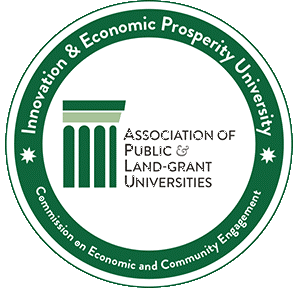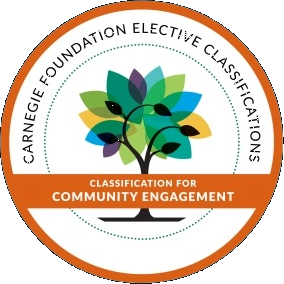Typology of Publicly Engaged Scholarship
Despite significant institutional rhetoric about engaged scholarship, scant empirical research has focused on the activities that constitute publicly engaged scholarship from the faculty perspective. The purpose of this study was to develop a typology of publicly engaged scholarship based upon faculty descriptions of their scholarly work. An interdisciplinary research team with MSU’s National Collaborative for the Study of University Engagement conducted an interpretive content analysis of 173 promotion and tenure forms provided by successful tenure-track faculty at Michigan State University, a research-intensive, land-grant, Carnegie-Engaged institution in the Midwest.
The 14-category typology that emerged from the data and literature comprises four types of publicly engaged research and creative activities, five types of publicly engaged instruction, four types of publicly engaged service, and one type of publicly engaged commercialized activity.
Publicly Engaged Research and Creative Activities
- Research—business, industry, commodity group funded
- Research—nonprofit, foundation, government funded
- Research—unfunded or intramurally funded
- Creative activities
Publicly Engaged Instruction
- Instruction—credit—nontraditional learners
- Instruction—credit—curricular, community-engaged learning
- Instruction—noncredit—classes, programs
- Instruction—noncredit—managed learning environments
- Instruction—noncredit—public understanding, events, and media
Publicly Engaged Service
- Service—technical assistance, expert testimony, legal advice
- Service—co-curricular service learning
- Service—patient, clinical, or diagnostic services
- Service—advisory boards and other disciplinary-related service
Publicly Engaged Commercialized Activities
- Commercialized activities
The typology may be useful as a basis for cross-institutional comparisons, institutional responses to public accountability, more effective faculty development programs, and strategic career decision-making by individual faculty members and emerging engaged scholars.
Partners:
- MSU Academic Human Resources
People:
Director for Faculty and Professional Development, Office for Public Engagement and Scholarship
Adjunct Associate Professor, Department of Community Sustainability
Office for Public Engagement and Scholarship









